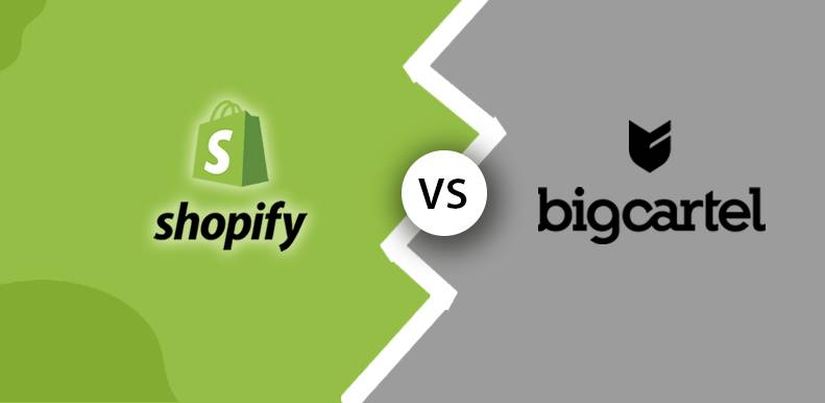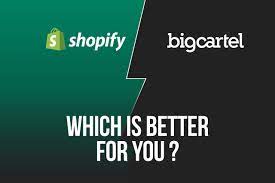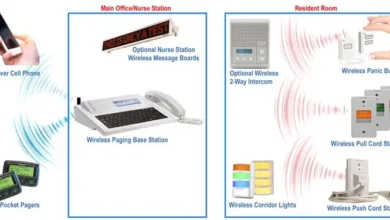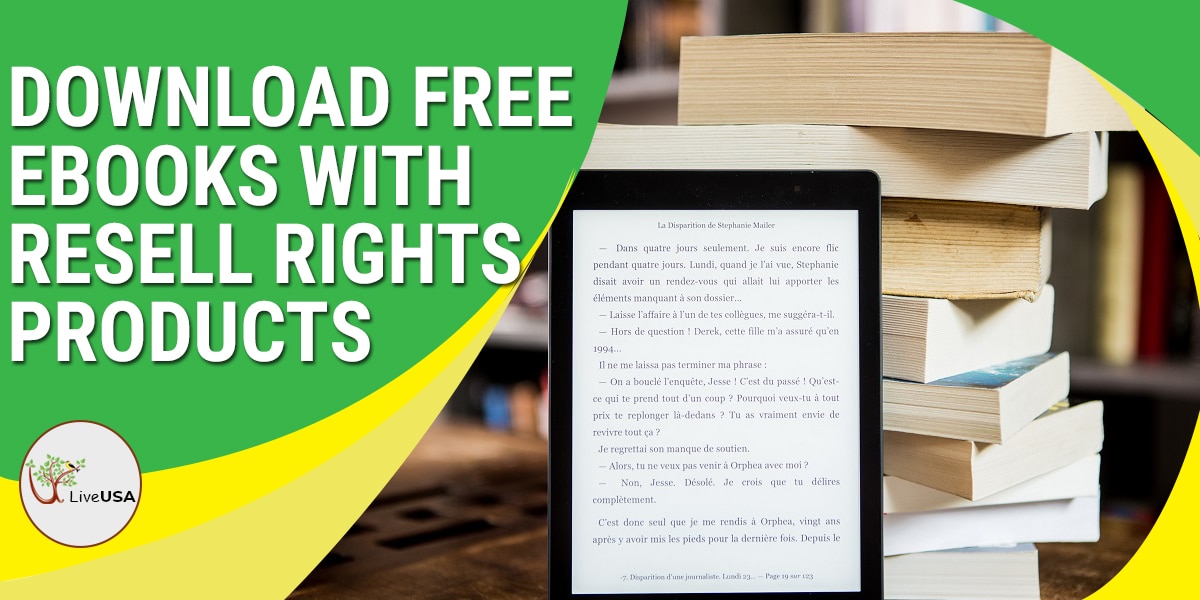Big Cartel vs Shopify vs Etsy Alternatives

Comparisons between Big Cartel and Shopify depend on your business goals and priorities. Both platforms offer user-friendly, no-code solutions for selling items, but the better option for you will vary. If you aim to scale your e-commerce business extensively, Shopify would be the preferred choice. However, if you prioritize a free or low-cost option, have a smaller inventory, or don’t require advanced customization, Big Cartel would be a suitable option. Ultimately, consider your specific needs and preferences when deciding between the two platforms.
Big Cartel vs Shopify – Overview
Shopify and Big Cartel target different audiences. Big Cartel caters to artists and small businesses with basic needs and a limited number of products. It lacks scalability and flexibility, making it less suitable for larger businesses or those who want to avoid coding.
Shopify, on the other hand, appeals to a wide range of business types and provides quality features, customizable designs, and scalability, making it suitable for both smaller and larger stores with growth plans.
Big Cartel positions itself as the premier e-commerce platform for artists and makers, offering free and low-cost plans without fees. It emphasizes ease of use and the ability to create a professional web store without coding.
Shopify also enables the creation of fully functional e-commerce websites and offers a free trial, but it is more expensive than Big Cartel. However, Shopify provides greater customization, features, and app integrations. Choosing the right platform depends on your long-term business objectives.
Big Cartel
- Pricing: Free; $9.99 to $19.99 per month
-
Built-in payment processor: No
-
Product limit: 500
Pros:
- Free plans are available and more affordable e-commerce plans
- No transaction fees
- Very beginner-friendly
- Built-in site analytics
Cons:
- A small selection of theme templates
- Fewer payment options
- Product listings have a maximum of five images
Shopify
- Pricing: $29 – per month (paid annually) for an online store
- Built-in payment processor: Yes
- Product limit: None
Pros:
- Enable sales across various channels, encompassing in-store and social media platforms.
- Highly customizable options are are available.
- 24/7 customer support
- Many dropshipping integrations
Cons:
- There is no free plan after the trial expires
- Add-ons can become very expensive
- Has transaction fees
- Not as user-friendly as Big Cartel
Comparing Big Cartel and Shopify’s Performance
| Price |
Big Cartel No-cost perpetually for up to five products, followed by a monthly fee of $9.99 to $19.99. |
Shopify $29 to $299 per month for an e-commerce website |
| Free Trial | No, but it offers a free plan | 14 days |
| Transaction Fees | Varies by payment processor |
With the Shopify Basic plan, each transaction incurs a fee of 2.9% along with an additional 30 cents. |
| Maximum Products | 500 | Unlimited |
| Themes | 19 free themes with limited customization options |
There are 17 themes available for free, alongside 79 paid themes that offer enhanced design flexibility. |
| Integrations | 4,000-plus integrations through Zapier | 6,000-plus integrations through the Shopify app store |
| Payment Processing |
There is no integrated processor. However, you can utilize Apple Pay, PayPal, or Stripe for credit card transactions. |
Integrated payment processor accepting major credit/debit cards, Apple Pay, Google Pay, and PayPal. |
| SEO Tools |
Editing meta descriptions isn’t possible. Creating redirects or adding a blog requires external tools or HTML knowledge, making it less user-friendly. |
Easily modify title tags, meta descriptions, and URLs. Adding a blog is straightforward |
| Customer Service | Support via email is accessible Monday to Friday, 8 a.m. to 6 p.m. ET for all plans. Extensive support documentation is also provided. | All plans offer 24/7 support through email, phone, and live chat. Additionally, certain plans include a dedicated account representative. |
Big Cartel vs Shopify – Comparision

Which is the Easiest to Use:
Big Cartel excels in terms of ease of use. In our findings, it received a rating of 3.7 out of 5, whereas Shopify obtained a score of 3.5 out of 5.Thanks to its excellent onboarding process that provides helpful hints and tips for navigating its interface. In contrast, Shopify can be overwhelming, especially for beginners, and provides more robust e-commerce capabilities compared to Big Cartel.
Which has the Best Sales Features: Big Cartel vs Shopify?
Which has the Better Design?
Shopify’s themes are fully mobile-optimized, ensuring a seamless appearance across screens. Users can edit both mobile and desktop versions for complete control.
Choosing a Shopify theme is akin to picking a house—while customization allows personalization, altering fundamental structures requires effort. Themes offer modern, professional looks and ample customization for branding. Opting for a theme aligned with your business’s features is advisable to ease customization efforts.
Big Cartel’s design options are less versatile compared to Shopify. While Big Cartel offers 18 clean and visually appealing themes, the customization options are limited. Unlike Shopify, users cannot edit the mobile version of their store’s layout. Although the mobile version automatically reformats, users have no control over the mobile layout.
Big Cartel has a narrower range of choices compared to Shopify and other competitors, with a focus primarily on artists and photographers. Users can preview themes before selecting them to ensure the right style for their business.
However, a significant drawback of Big Cartel’s designs is the lack of included features. None of the themes offer product image zoom, product videos, or customer logins, which are important for enhancing the customer experience and encouraging repeat purchases.
Customizing a Big Cartel theme is more challenging, as editing and adding images requires coding skills. This limitation restricts the extent to which users can personalize their storefronts if they are not comfortable with coding.
Which has More Apps and Integrations: Big Cartel vs Shopify
Shopify’s extensive range of quality apps sets it apart from Big Cartel, ensuring access to essential tools for business success—spanning social media, email marketing, and CRM management.
Shopify boasts 6,000+ apps, half of which are free, with prices spanning $2.99 to $299/month; many paid apps offer free trials. Big Cartel integrates with 1,500+ apps via Zapier for automating e-commerce tasks.
Which has the Better Customer Support: Big Cartel vs Shopify
Shopify excels in customer support, securing the top spot with 24/7 live chat, phone support, and comprehensive resources. In contrast, Big Cartel, though with a decent help center, lags behind due to its limited support options, ranking lowest among tested platforms.
For those not seeking immediate assistance, Big Cartel offers a user-friendly Help Center, enabling easy and swift access to relevant help articles through its straightforward navigation.
Which is Better Value for Money: Big Cartel vs Shopify
Shopify, rated at 3 out of 5 for value, presents a broader array of features within its subscription tiers and offers scalability. In contrast, Big Cartel’s plans, with constrained features and unavoidable fees, hinder growth potential, resulting in a lower score of 2.4 out of 5 in this aspect.
Big Cartel offers three plans, including a free version and two paid options priced at $9.99 to $19.99 monthly, capped at 500 products. Conversely, Shopify presents three paid plans ranging from $29 to $299 monthly, featuring unlimited products and a 3-day free trial. The Shopify Basic plan, starting at $29 per month, surpasses the offerings of Big Cartel’s priciest plan, boasting powerful features.
Payment Options: Big Cartel vs Shopify
Abandoned Cart Recovery
The process of abandoned cart recovery can significantly cut costs. But what’s the mechanism behind its effectiveness?
One key advantage of Shopify is its built-in feature for contacting customers and recovering abandoned sales. It allows you to review abandoned checkouts, analyze the reasons for abandonment, and take proactive measures.
On the other hand, Big Cartel lacks abandoned cart recovery, which is a significant drawback to consider when making your decision.
Product Uploads: Shopify vs Big Cartel
Big Cartel is well-suited for small businesses that focus on selling individual pieces. The free plan allows up to five products, while the more expensive plan accommodates up to 500 products for $29.99. However, Big Cartel lacks bulk product uploading, which limits its scalability for larger or growing businesses.
In contrast, Shopify offers an impressive inventory system. It allows both single-product addition and bulk uploading, with no limit on the number of products you can add. This scalability makes Shopify a preferable choice over Big Cartel for businesses with expanding product lines.
Product Types: Big Cartel vs Shopify
Both Shopify and BigCartel provide features that allow users to categorize their products. In Shopify, the “product types” feature enables store owners to divide their products into categories like shirts, pants, and socks for easy customer navigation. Additionally, Shopify offers product tags and a “product vendor” feature for internal organizations.
Big Cartel offers a similar feature called “product category” that allows store owners to categorize their products. When an active product is added to a category, the category link appears on the store’s Products page. Big Cartel also supports product tags.
While Shopify offers more flexibility with sorting by vendors, types, and tags, small store owners will find Big Cartel’s product navigation suitable for their needs.
Shipping Options: Big Cartel vs Shopify
When it comes to shipping features, Shopify outperforms Big Cartel significantly. Shopify provides the Shopify Shipping suite, which allows users to easily manage rates, and bulk-print labels, and offers discounts on shipping rates through USPS, UPS, or DHL Express. Additionally, the Advanced plan includes automatic carrier-calculated shipping rates.
While Big Cartel doesn’t handle shipping directly, it offers app integrations like ShipStation to incorporate third-party shipping services. However, it can’t match the comprehensive shipping support and capabilities provided by Shopify.
For more detailed information about Shopify’s shipping arrangements, you can refer to dedicated articles on Shopify Shipping and Shopify’s Shipping Rates.
Dropshipping: Big Cartel vs Shopify
Big Cartel, artist-oriented, facilitates art-printed merchandise dropshipping via Printful and Art of Where, yet its overall dropshipping features are notably restricted. In contrast, Shopify boasts dropshipper-friendly attributes, offering a wide array of apps for streamlined dropshipping.
PCI Compliance
PCI compliance ensures secure customer data handling in web stores. Big Cartel lacks PCI compliance, relying on external processors like PayPal and Stripe for compliance. Shopify ensures PCI compliance regardless of the chosen processor, providing robust data security.
SSL Security
Both Big Cartel and Shopify prioritize the security of online payments by offering SSL security for their users. This ensures that customers can safely complete their transactions on the websites.
Social Media Integration: Big Cartel vs Shopify
Shopify provides a wide range of over 438 app integrations for various social media platforms, including Pinterest, Facebook, Instagram, Twitter, and WhatsApp. This extensive selection caters to users’ needs in connecting with customers across social platforms and websites.
While Big Cartel’s app integrations are more limited, they cover major requirements such as setting up a Big Cartel-integrated Facebook Store and Instagram shopping posts. Additionally, users can connect to platforms like Twitter, MailChimp, and WordPress through apps from the web automation service Zapier.
Shopify vs Big Cartel Transaction Fee
Shopify offers three transaction rates based on its price plans, ranging from 2.9% + $0.30 per transaction for the Basic Shopify plan to 2.4% + $0.30 per transaction for the Advanced Shopify plan. However, using Shopify’s own payment gateway, Shopify Payments, allows users to avoid transaction fees entirely.
Big Cartel, on the other hand, doesn’t handle transactions directly and requires the use of third-party services like Stripe and PayPal. Both Stripe and PayPal charge a transaction fee of 2.9% + $0.30, which is comparable to Shopify’s highest transaction rates.
Considering the similar transaction fees and the inability to avoid fees on Big Cartel, the overall cost for small stores is likely to be comparable between Big Cartel and Shopify.
Payment Processing: Big Cartel vs Shopify Fee Structure
A payment processor is essential for accepting non-cash payments in an online store. However, there are differences between integrated and non-integrated processors. Integrated processors are directly connected to the store’s software, while non-integrated processors require a separate login and are independent entities.
In the case of Big Cartel, it does not have an integrated payment processor. This means users have to utilize a processor that is not directly connected to their store. Consequently, they will be subject to the credit card processing fees set by the external processor. Notably, Big Cartel does not charge listing fees or take a percentage of sales.
On the other hand, Shopify offers its own fully integrated payment processor called Shopify Payments. With Shopify Payments, users can access their payment data alongside other store data and enjoy the benefit of no transaction fees. However, if users opt for an external processor, they will incur transaction fees in addition to processing fees.
Big Cartel vs Shopify vs Etsy alternatives
In the context of Big Cartel vs Shopify, when it comes to setting up an online store, Big Cartel, Shopify, and Etsy are popular platforms. However, if you’re looking for alternatives to these platforms, there are several other options available.
- WooCommerce:
- WooCommerce is a powerful and customizable e-commerce plugin for WordPress.
- It offers a wide range of extensions and themes to enhance the functionality and design of your online store.
- WooCommerce provides complete control over your store, including payment gateways, shipping options, and inventory management.
- Squarespace:
- Squarespace is a website builder that also offers e-commerce functionality.
- It provides beautiful and modern templates to create visually appealing online stores.
- Squarespace offers built-in SEO features, blogging capabilities, and reliable customer support.
- Wix:
- Wix is another popular website builder with integrated e-commerce functionality.
- It offers a drag-and-drop interface, making it easy to build and customize your store.
- Wix provides a wide range of apps and features for marketing, SEO, and customer engagement.
- Magento:
- Magento is a robust and scalable e-commerce platform suitable for large and complex online stores.
- It offers advanced features like multi-store management, internationalization, and extensive customization options.
- Magento provides a rich ecosystem of extensions and integrations for enhanced functionality.
- Ecwid:
- Ecwid is a flexible and user-friendly e-commerce platform that can be easily integrated into existing websites, blogs, or social media pages.
- It offers a seamless shopping experience across multiple channels.
- Ecwid provides features like inventory management, mobile responsiveness, and various payment options.
Big Cartel vs Shopify vs Etsy
Shopify vs Etsy
Shopify and Etsy both offer e-commerce platforms for selling goods and services, but they differ in their approach. Shopify enables users to create their own branded online store, while Etsy operates as a marketplace. While Etsy is widely known for handmade goods, it also includes sellers who offer vintage clothing, crafting supplies, and other unique items. On the other hand, Shopify accommodates a broader range of products, including handmade goods, apparel, jewelry, and various other merchandise.
Big Cartel vs Etsy
Both Big Cartel and Etsy are excellent platforms for artists and entrepreneurs selling online. The choice between them depends on your business priorities. Etsy is advantageous for new businesses seeking visibility and access to a large audience, while Big Cartel is more cost-effective for established businesses with an existing customer base. Big Cartel stands out with its diverse product options, attractive templates, zero transaction fees, and appealing free plan. Despite fee concerns, Etsy remains a top choice for creative entrepreneurs and indie sellers, offering free selling and access to an active buyer community.
Big Cartel specifically caters to artists and makers, providing them with the tools to create their own online stores. On the other hand, Etsy operates as a marketplace that encompasses various types of handcrafted products. When deciding between Etsy and Shopify, it is important to consider your specific business requirements and objectives.
Etsy is well-suited for beginners who already have an established customer base and offer unique items. It provides a platform to reach a wide audience and connect with potential buyers.
In contrast, Shopify is more suitable for larger businesses that require scalability and customization options. It offers the flexibility to expand and adapt to evolving business needs.
Big Cartel provides a standalone store with custom domain options and lower fees compared to Etsy. However, Etsy offers marketing advantages and exposure through its marketplace audience and search engine tools. Shopify surpasses both platforms with its extensive app selection, offering over 6,000 apps in its app store.
Overall, the choice between Etsy and Shopify depends on the individual needs and goals of the business in question.
While Big Cartel vs Shopify, and Etsy are popular choices for online store owners, there are several alternatives available that cater to different needs and preferences. Consider factors such as customization options, pricing, scalability, and features when choosing the right platform for your online store. Explore these alternatives to find the one that best suits your business goals and helps you create a successful online presence.
FAQs – Big Cartel vs Shopify

How much does Big Cartel take per sale?
Unlike some other shop hosting platforms, Big Cartel does not impose any listing or transaction fees on its users. Instead, the fees associated with payment processing are determined by the chosen provider. For example, with Stripe, online sales incur a fee of 2.9% plus 30 cents per transaction, while in-person credit card processing carries a fee of 2.7% plus 5 cents per transaction.
Tag-Big Cartel vs Shopify: Big Cartel fees, big cartel or Etsy, big cartel or Shopify, big cartel Reddit, big cartel transaction fee, big cartel vs Etsy, big cartel vs Shopify Reddit, big cartel vs Shopify vs Etsy, bigcartel Reddit, Etsy alternatives, Etsy vs big cartel, how much does big cartel take per sale, Shopify or big cartel, site like Etsy




